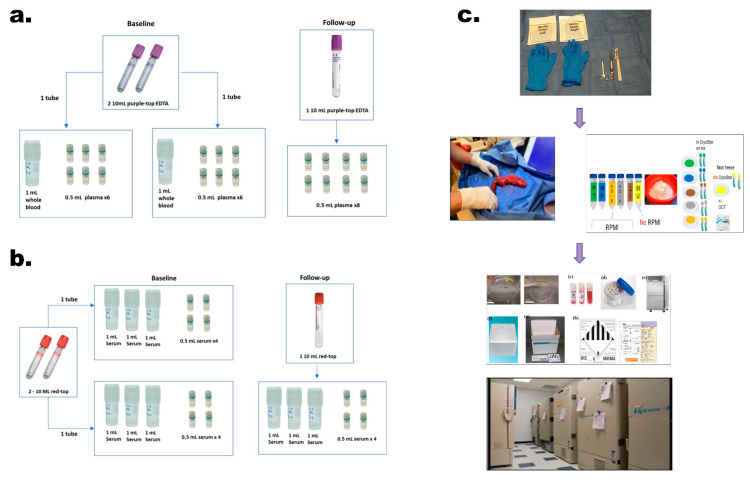Well-annotated, high-quality biorepositories provide a valuable platform to support translational research. However, most biorepositories have poor representation of minority groups, limiting the ability to address health disparities.
This paper describes the establishment of the Florida Pancreas Collaborative (FPC), the first state-wide prospective cohort study and biorepository designed to address the higher burden of pancreatic cancer (PaCa) in African Americans (AA) compared to Non-Hispanic Whites (NHW) and Hispanic/Latinx (H/L). They provide an overview of stakeholders; study eligibility and design; recruitment strategies; standard operating procedures to collect, process, store, and transfer biospecimens, medical images, and data; our cloud-based data management platform; and progress regarding recruitment and biobanking.

Blood and Tissue Collection and Processing Workflow
The FPC consists of multidisciplinary teams from fifteen Florida medical institutions. From March 2019 through August 2020, 350 patients were assessed for eligibility, 323 met inclusion/exclusion criteria, and 305 (94%) enrolled, including 228 NHW, 30 AA, and 47 H/L, with 94%, 100%, and 94% participation rates, respectively. A high percentage of participants have donated blood (87%), pancreatic tumor tissue (41%), computed tomography scans (76%), and questionnaires (62%).
This biorepository addresses a critical gap in PaCa research and has the potential to advance translational studies intended to minimize disparities and reduce PaCa-related morbidity and mortality.
Click here to read more.